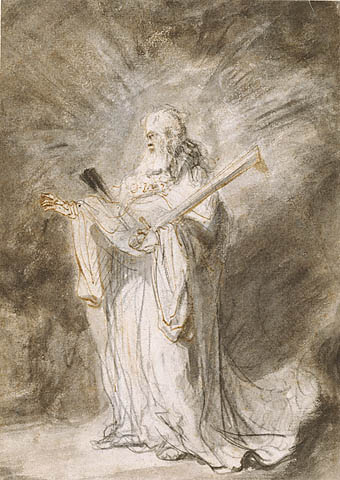Antoon Claeissens, The Judgement of Solomon
I have maintained that in order to have true vision—which is seeing what God sees—we first need to see God himself. Very often the glimpse that people have of God—thus getting them started on their path to vision—is seeing God "with" someone else.
Let's take Joseph, for example. His master Potiphar's first vision of Yahweh, the true God, was "observ[ing] that the LORD was with [Joseph] and that the LORD made everything he was doing successful" (Gen. 39:3). This man who didn't worship Yahweh was seeing what God was doing for the first time. He saw that God was going to keep blessing Joseph, so it was wise for him to get in line with that.
A few centuries later, Balaam, who had been hired to curse Israel, refused to do it but rather blessed Israel instead because he saw that Yahweh was with Israel. His "eyes were open" to God's favor on that nation; he saw what God saw and got in line with it.
When King Solomon made his famous verdict between the two prostitutes, word got around throughout Israel, and "they held the king in awe, because they saw that he had wisdom from God to administer justice" (1 Kings 3:28, NIV). With God in Solomon's mind, no one could get away with anything, so they got in line with God's intentions.
Not everyone in your world will see the vision that God gives you or your church. In fact, most will not, at least not initially. But if your vision really is from God, then you won't just have God's vision but God himself. The first glimpse people get of the vision is the powerful, prospering presence of God with you.
In order to properly communicate vision, we must communicate God by revealing him through our impossible power and success. When people wonder, "How could someone so ordinary do something so extraordinary?—it must be God," they have started down the path to catch the vision.



